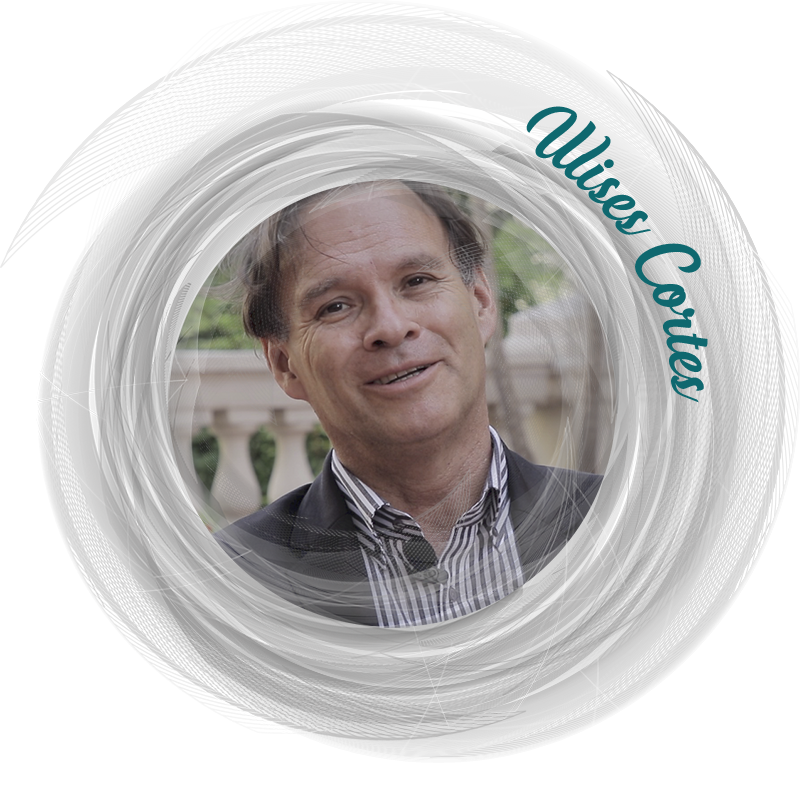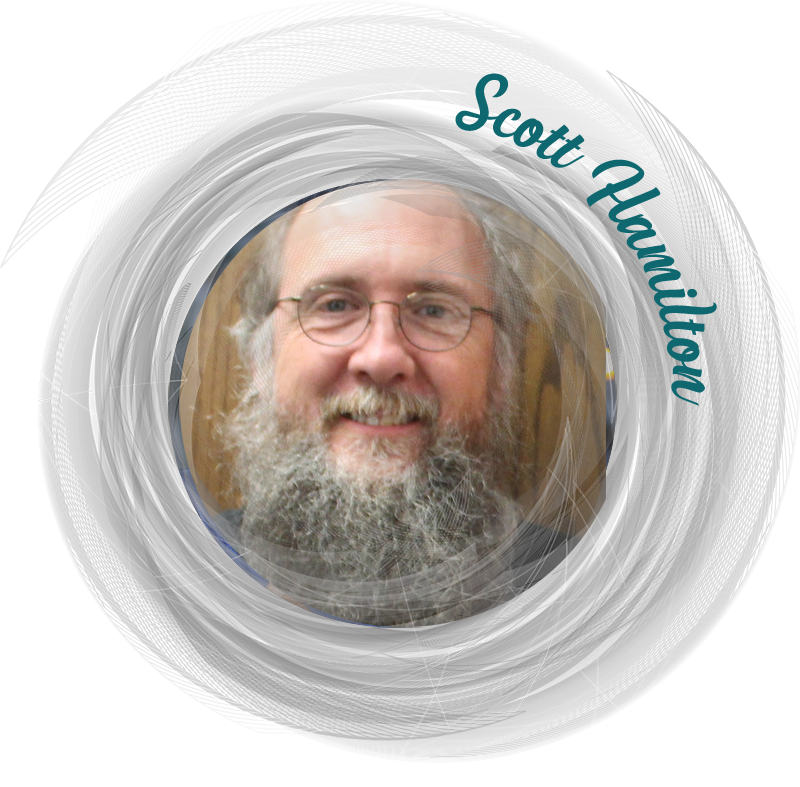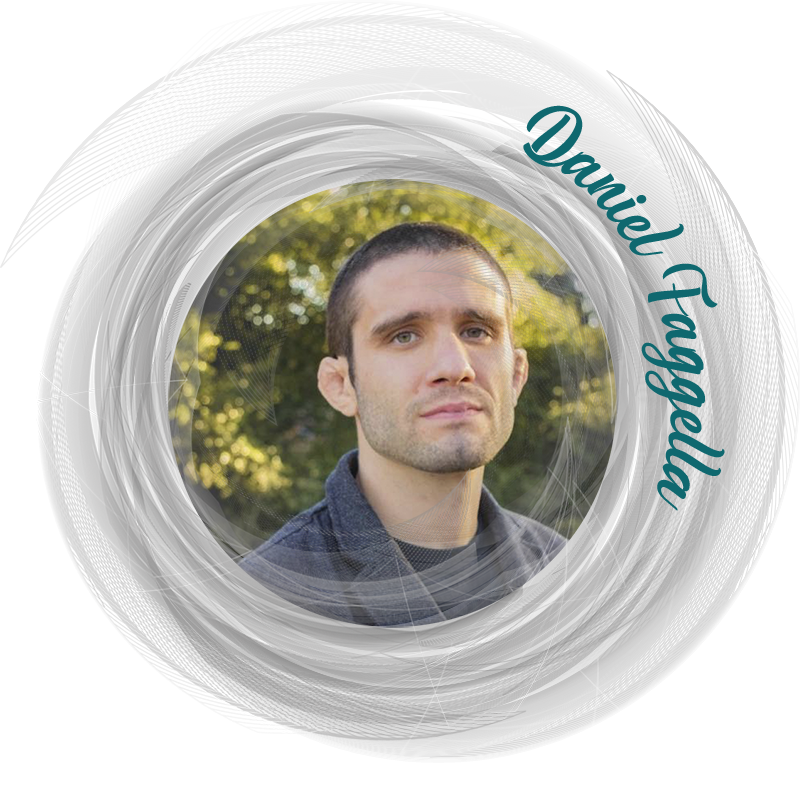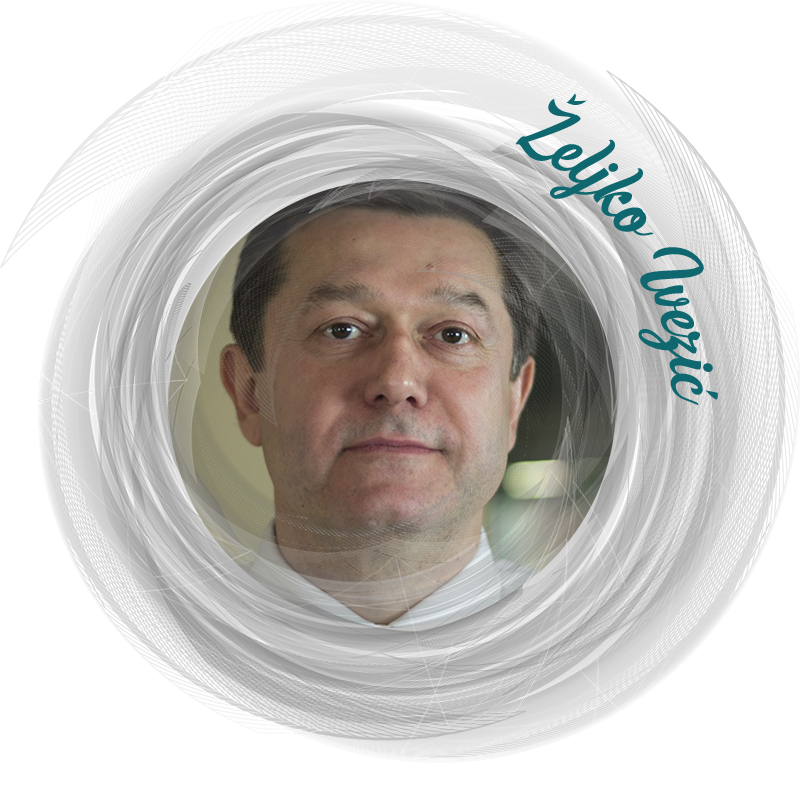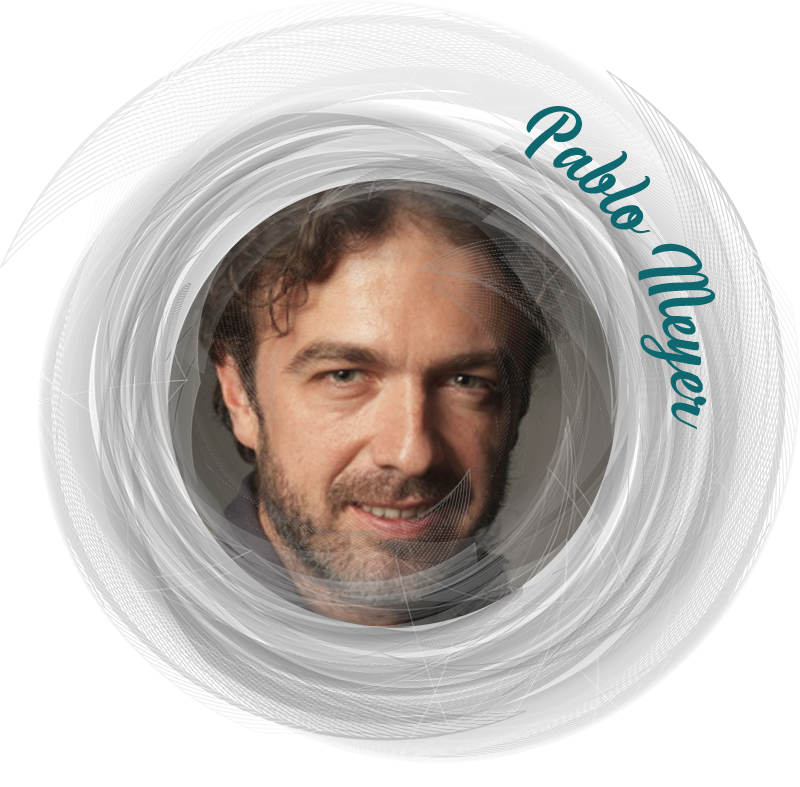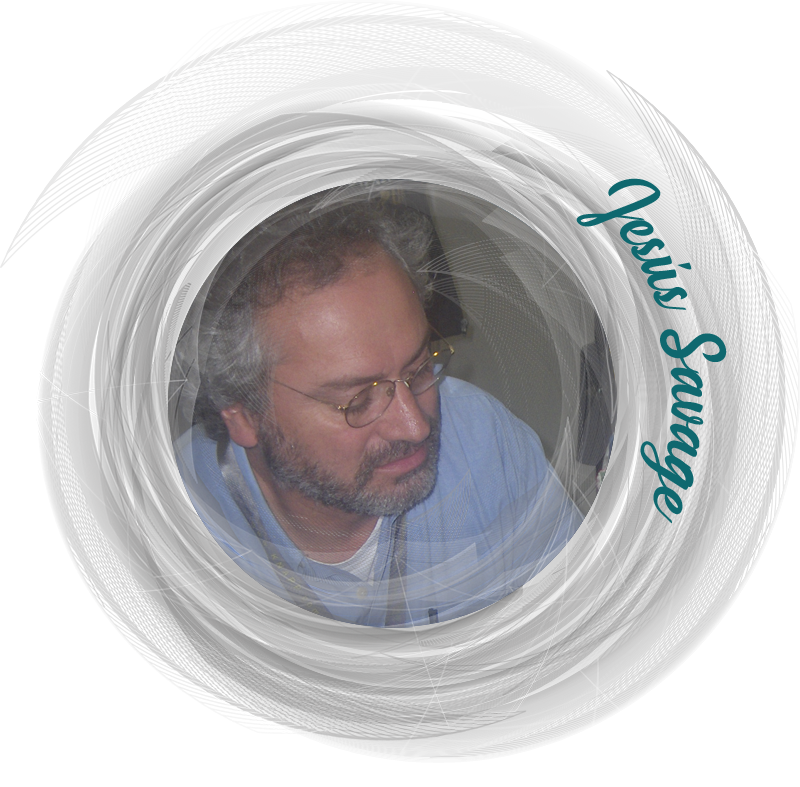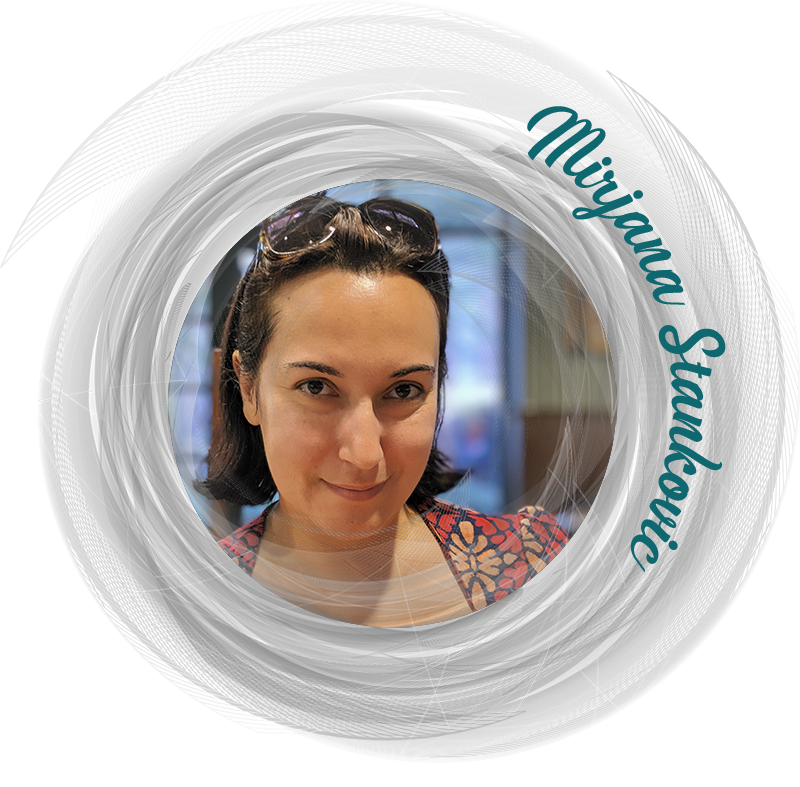Keynote Speakers
PROGRAM DETAILS: https://indico.cern.ch/event/781223/timetable/#20191021.detailed
|
|
Ulises Cortés (Barcelona Supercomputing Center) • Trustworthy AI - The AI4EU Approach | Tuesday 22, 9:00 . • Bio Ulises Cortés is a Full -Professor and Researcher of the Universitat Politècnica de Catalunya. Tenured since 1988 and habilitated as Full-Professor since 2006. His current focus is on several areas of AI in the Computer Science Department including knowledge acquisition and concept formation in knowledge-based systems, as well as on machine learning and in autonomous intelligent agents. Many of his contributions have been applied in real life scenarios and industry. He is the scientific coordinator of the High-Performance Artificial Intelligence Group at the Barcelona Supercomputing Center. |
|
|
Scott Hamilton (Atos) • Quantum Computing: Future Proofing what Lies Beyond Super-Computing | Friday 25, 9:45 The race is on, as more computing power is required to solve some of the most complex, data-intensive problems in existence today. How will quantum computing overcome its inherent challenges - cost, footprint, power consumption, temperature requirements, instability - to leapfrog super computers as the platform for the future? See how quantum simulators are helping to overcome those challenges and enabling researchers and end users alike the ability to develop quantum algorithms that will solve problems faster leading to new pharmaceuticals and medical treatments, improved financial modeling and weather forecasting, cheaper energy production and much more. • Bio Scott Hamilton is the Senior Hardware & HPC Expert at ATOS. He has several years of experience in software and hardware engineering and has a desire to share his passion and knowledge of high-performance computing (HPC) with others. As lead for HPC research at the Missouri University of Science and Technology, Scott supported multidisciplinary research through computational simulation on HPC systems. At Atos, Scott custom designs hardware and software solutions for computational sciences, data sciences, and scientific simulation and modeling. He frequently partners with research scientists in various fields, assisting them with software design for simulations and demonstrations. |
|
|
Daniel Faggella (Emerj AI Research) • AI Innovation - Pharmaceutical Sector | Monday 21, 9:30 In this presentation, Daniel Faggella highlights the critical industry applications of machine learning in pharmaceutical research and development. Drawing upon research from the AI startup landscape and applications in industry, this presentation helps attendees see the critical AI capabilities with the most near-term promise in life sciences. • Bio Daniel Faggella is CEO / founder at EMERG AI Research, a research and advisory firm that helps global organizations develop productive AI strategies. Emerj specializes in mapping the landscape of AI capabilities, and determining the critical trends that business leaders need to reach their goals. Emerj conducts cutting-edge research for clients like the World Bank, global pharmaceutical companies, and more. |
|
|
Željko Ivezic (Univ. of Washington) • Upcoming Big Data and AI Challenges in Astronomy | Thursday 21, 9:45 Thanks to the rapid development of telescopes, detectors and information technologies, modern astronomical facilities are collecting huge amounts of data. The largest project, the upcoming Large Synoptic Survey Telescope will collect about 100 petabytes of imaging data during its 10-year survey, starting in 2022. The resulting dataset wil enable a range of scientific investigations, each presenting unique Big Data and AI challenges. • Bio Željko Ivezic obtained his undergraduate degrees in mechanical engineering and physics from the University of Zagreb, Croatia, and his Ph.D. in physics from the University of Kentucky. He is currently a professor of astronomy at the University of Washington and serves as the Project Scientist and Deputy Director for the Large Synoptic Survey Telescope (www.lsst.org). |
|
|
Michael Aaron Kagan (CERN) • Machine Learning in High Energy Physics | Monday 21, 10:15 Summary. • Bio Bio. |
|
|
Pablo Meyer (IBM) • Leveraging AI Communities as Innovation Engines in Life Sciences | Thursday 24, 9:00 The generation of large-scale biomedical data is creating unprecedented opportunities for applications of AI solutions. Typically, the data producers develop initial predictions using AI, but it is very likely that the higher performing AI methods may reside with other groups. Crowdsourcing the analysis of complex and massive data has emerged as a framework to find robust methodologies in healthcare and drug discovery. When the crowdsourcing is done in the form of collaborative scientific competitions, known as Challenges, the validation of the AI methods is inherently addressed. Challenges also encourage open innovatrion, create collaborative communities to solve diverse and important biomedical problemas, and foster the creation and dissemination of well-curated data repositories. • Bio Pablo Meyer is a team leader in the Translational Systems Biology and Nanobiotechnology group and Research Staff member in the IBM Computational Biology Center. He also chairs the DREAM Conference and is a Director of DREAM Challenges. He joined IBM Research in 2010. Meyer is a physicist (UNAM). He obtained his masters degree in the University of Paris VII/XI and his Ph.D. in Genetics from the Rockefeller University (2005). |
|
|
Jesús Savage (Faculty of Engineering, UNAM) • Robotics, AI and Machine Vision | Friday 25, 9:00 In this talk it is presented the semantic-reasoning module of VIRBOT, our proposed architecture for service robots. We show that by combining symbolic AI with digital-signal processing techniques this module achieves competitive performance. Our system translates a voice command into an unambiguous representation that helps an inference engine, built around an expert system, to perform action and motion planning. First, in the natural-language interpretation process, the system generates two outputs: (1) conceptual dependence, expressing the linguistic meaning of the statement, and (2) verbal confirmation, a paraphrase in natural language that is repeated to the user to confirm that the command has been correctly understood. Then, a conceptual-dependency interpreter extracts semantic role structures from the input sentence and looks for such structures in a set of known interpretation patterns. We evaluate this approach in a series of skill-specific semantic-reasoning experiments. Finally, we demonstrate our system in the general-purpose service robot test of the RoboCup-at-Home international competition, where incomplete information is given to a robot and the robot must recognize and request the missing information, and we compare our results with a series of baselines from the competition where our proposal performed best. • Bio Jesus Savage, Ph.D. in Electrical Engineering, University of Washington, 1995. Full Time Professor at the EE Department, School of Engineering, UNAM. Founder of the Bio-Robotics Laboratory at UNAM (1996), in which research on human machine interfaces (speech and vision) and service robots is performed. |
|
|
Mirjana Stankovic (Tambourine Innovation Ventures) • Regulating Emerging Technologies: Opportunities and Challenges for Latin America | Tuesday 22, 9:45 “Can regulators keep up with fintech?” “Your Apps Know Where You Were Last Night, and They’re Not Keeping It Secret.” “Regulators scramble to stay ahead of self-driving cars.” “Digital health dilemma: Regulators struggle to keep pace with health care technology innovation.” Headlines like these capture a central challenge to today’s regulators. Existing regulatory structures are often slow to adapt to changing social and economic circumstances, and are generally risk-averse. The policy cycle often takes anything from five to 20 years whereas a unicorn startup can develop into a global company in just a few months. Airbnb, for example, went from 21,000 arrivals in 2009 to 80 million in 2016. In the meantime, cities and countries are still trying to figure out how, and if, they can regulate short-term rental markets. Ride-hailing services, such as Uber, have experienced similar hyper-growth as regulations in the space struggle to follow. As new innovation and business models emerge government agencies are challenged with creating, adapting, enforcing and communicating the regulations to the public at a previously undreamed-of pace. And they must do so while working within legacy frameworks and attempting to foster innovation. This presentation will highlight the unique regulatory challenges posed by digital-age technologies. Then it will describe the four critical questions policymakers and regulators in Latin America must address when it comes to regulating the Fourth Industrial Revolution. Finally, it will provide a set of five principles to guide the future of regulation. • Bio Dr. Mirjana Stankovic (Vice President – Emerging Technologies and Intellectual Property, Tambourine Innovation Ventures) is a seasoned international lawyer and development economist with more than fifteen years of rich professional and research portfolio in Intellectual Property Law, Technology Law, Innovation Regulation, and Legal, Ethical and Public Policy Aspects of Industry 4.0 and Emerging Technologies (AI, Blockchain, IoT, 3D Printing), and Technology Transfer. She has recently co-authored the World Bank White Paper: Exploring Legal, Ethical and Policy Implications of Artificial Intelligence; the World Bank White Paper on Patentability, Global Development and Ethical Considerations of Bioprinting; the World Bank Group publication Ukraine: Intellectual Property and Technology Transfer Regulatory Review; the Inter-American Bank Background Paper on Social Services for Digital Citizens: Opportunities for Latin America and the Caribbean; and the UNIDO Background Paper on Industry 4.0. She is also one of the co-authors of the upcoming African Development Bank Report on Unlocking the potential of the Fourth Industrial Revolution for Africa. |

